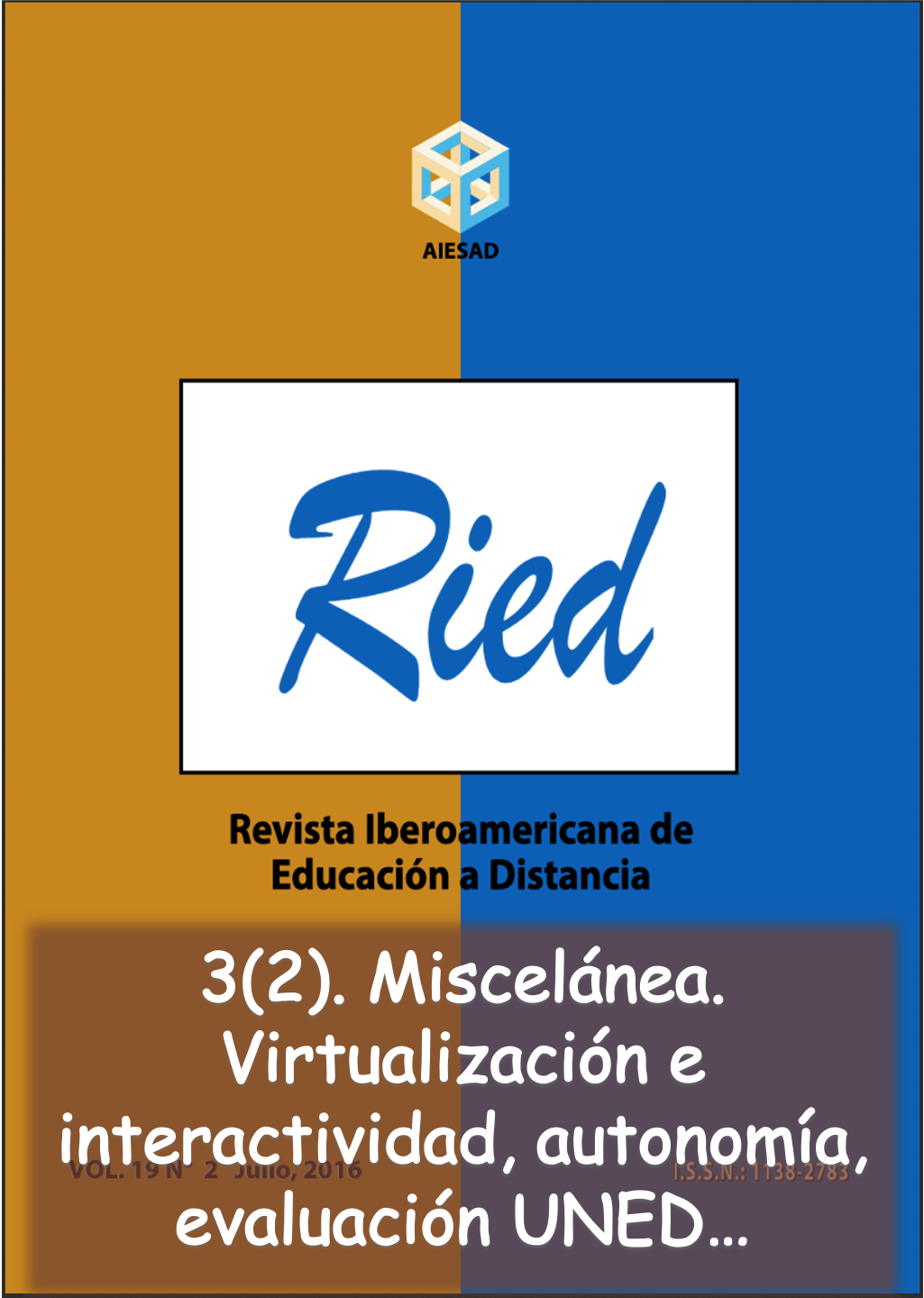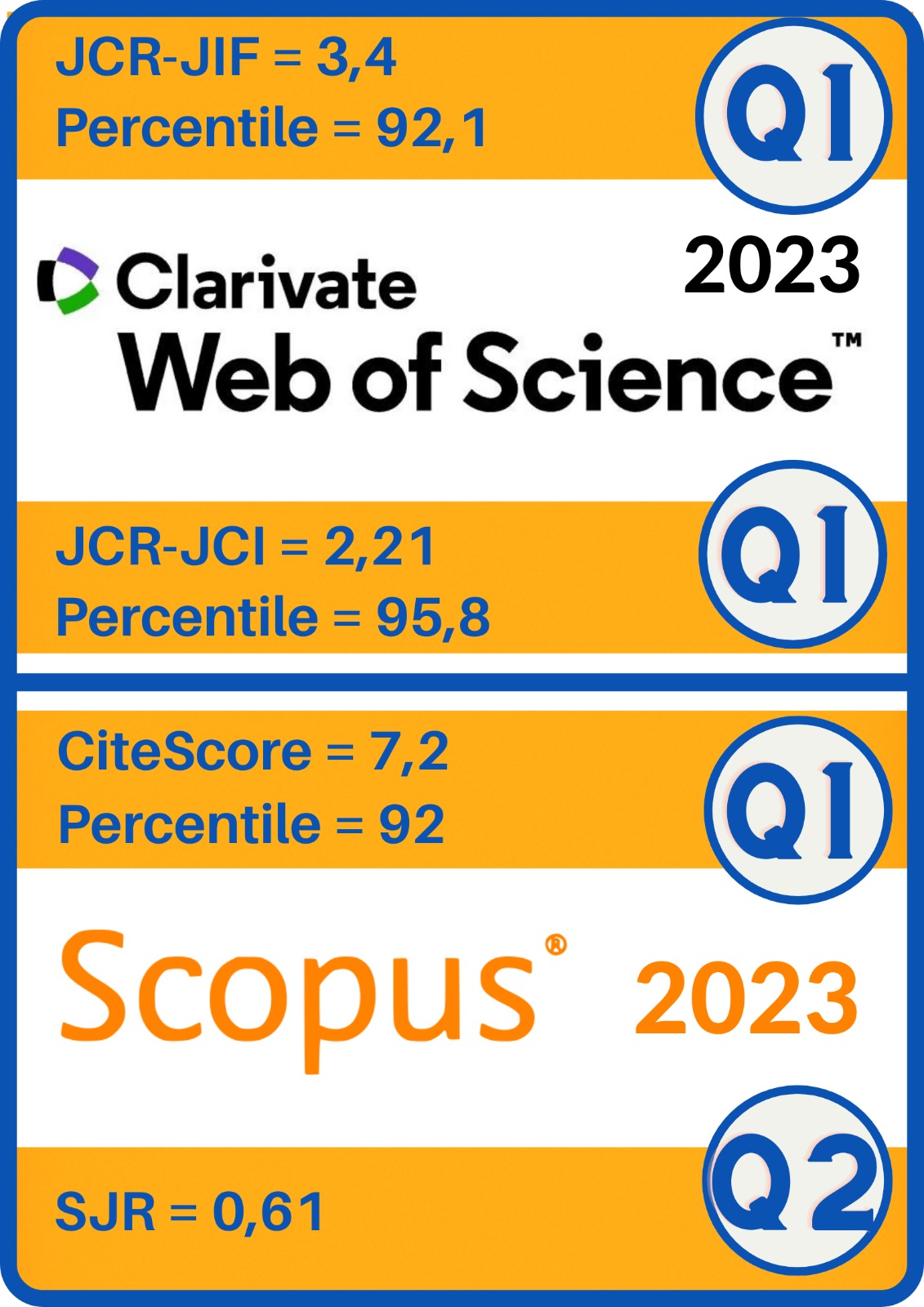ASSESSMENT TO MEET TARGETS IN THE UNED TIMING
DOI:
https://doi.org/10.5944/ried.3.2.1975Keywords:
distance education, quatonzatwre, academic sened, obfectives assessmentAbstract
Universities face the challen ges of postmodern society due to its complexity, dynamism and competitivity that ctaims for chcznges which reflex tn tlw Acaaemia: ln some cases, these transformations requiere an rn that involves all of the organization. This paper deals with such a situation as occured in UNED as o. consequence of the quatorization in 1996. It was expected to meet: quality of the academic program, an agile process of the progress of the student, better use of resources and of the finantial resources from student’s. This assay values such purposes. Those of quantitative nature are analyzed thru doe behaviour of their serials and the qualitative ones after their associated variables.Downloads
Downloads
How to Cite
Issue
Section
License
The articles that are published in this journal are subject to the following terms:
1. The authors grant the exploitation rights of the work accepted for publication to RIED, guarantee to the journal the right to be the first publication of research understaken and permit the journal to distribute the work published under the license indicated in point 2.
2. The articles are published in the electronic edition of the journal under a Creative Commons Attribution 4.0 International (CC BY 4.0) license. You can copy and redistribute the material in any medium or format, adapt, remix, transform, and build upon the material for any purpose, even commercially. You must give appropriate credit, provide a link to the license, and indicate if changes were made. You may do so in any reasonable manner, but not in any way that suggests the licensor endorses you or your use.
3. Conditions for self-archiving. Authors are encouraged to disseminate electronically the OnlineFirst version (assessed version and accepted for publication) of its articles before publication, always with reference to its publication by RIED, favoring its circulation and dissemination earlier and with this a possible increase in its citation and reach among the academic community.








